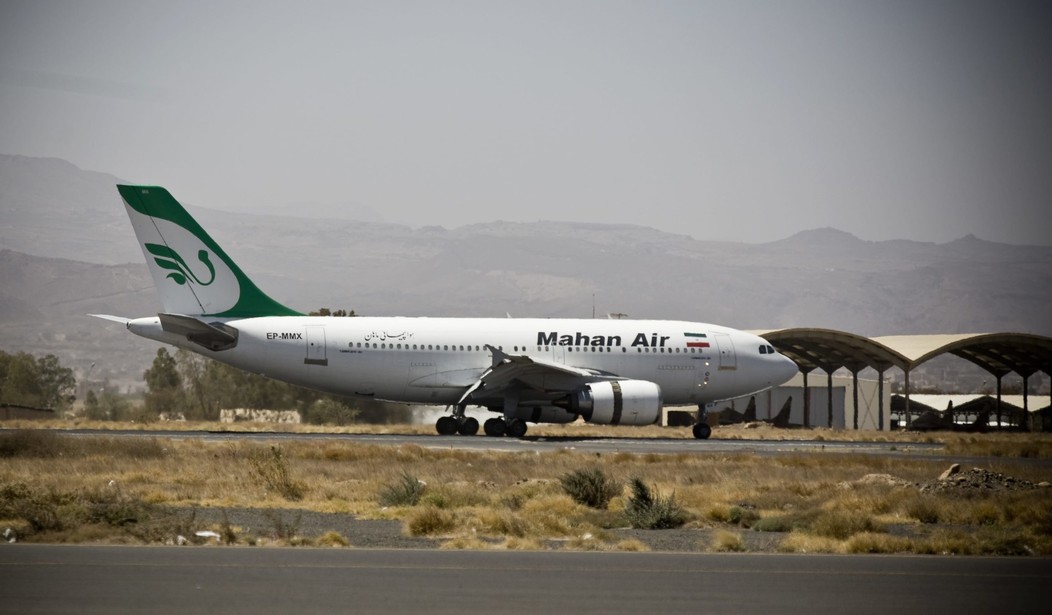WASHINGTON – A gap in sanctions policy against Mahan Air, which Iran has used to traffic weapons and terrorists, has put Americans and the world in danger as the airline is freely operating in major European airports, Rep. Brad Sherman (D-Calif.) told Treasury Department officials Thursday.
Mahan Air has been designated as a terrorist organization, given its support to the Assad regime in Syria. The airline, which is regarded as the Quds Force’s aviation arm, enjoys significant traffic through airports in Milan and Munich, allowing Iran to connect foreign flights to the United States.
“Why are we allowing European air carriers to start their flight at Mahan-infested airports and come to the United States?” Sherman asked during a Financial Services Subcommittee on Monetary Policy and Trade hearing. “Why are we not going after the airports, or are we serious about Mahan Air?”
While questioning Treasury’s Assistant Secretary for Terrorist Financing Marshall Billingslea and Director for the Office of Foreign Assets Control John E. Smith, Sherman asked why American companies are still doing business with airports that accommodate Mahan and why American airlines are still purchasing fuel from the same companies that deal to Mahan.
Billingslea responded that in a departure from the Obama administration, the Trump administration has been “incredibly” aggressive in trying to alter European relations with Iran. Smith noted that the Treasury Department has implemented some designations against European airlines in the past few months, most notably Ukraine International Airlines, which has discontinued some of the troublesome flights routes.
To Billingslea’s point that this administration has altered the previous approach, Sherman said that the Treasury Department is “setting a very low bar.”
“At least we cleared the bar, right?” Billingslea asked. “But I think you make a good point, and it would be very prudent for any company that transacts with Mahan Air to be exceptionally cautious going forward.”
“I don’t think they should be cautious,” Sherman said. “I think you should nail them.”
Sherman also noted that only a handful of companies and individuals who have provided assistance to Iran’s Islamic Revolutionary Guard Corps have suffered under secondary sanctions. The Los Angeles congressman asked if Treasury’s standard of proof is too high, if staffing is too low or if the agency doesn’t have enough staffers who speak Farsi.
Though Billingslea and Smith could not offer an exact number of staffers who speak Farsi, Billingslea said he is always on the lookout for good resumes. Smith said that the standard of proof is “reasonable belief,” which is something the U.S. government can “live with.” In terms of action being taken against those aiding the IRGC, he said the government looks to implement broad measures that will impact multiple perpetrators.
The hearing was organized to determine the effectiveness of U.S. sanctions against foreign adversaries. Chairman Andy Barr (R-Ky.) opened the hearing by giving credit to the Trump administration for its progress with North Korea.
“Let me first commend Treasury and the Trump administration for abandoning this policy of strategic patience that has led to North Korea obtaining a nuclear arsenal, including a hydrogen bomb, and as we saw earlier this week an intercontinental ballistic missile capable of reaching the continental United States,” Barr said.
Sherman, on the other hand, called on the administration to take action against the Chinese government, which reportedly enables about 90 percent of the North Korean economy. Sherman said that the administration has wrongly targeted Chinese companies and individuals, when it should be going after Beijing.
“The only way you’re going to accomplish anything is if you at least threaten to sanction the whole country,” Sherman said. “It’s got to be something that hits the government in Beijing – not just the pocketbook of a few large companies. Because it is not a successful sanction if you force somebody to pay a higher ATM fee, because the banks with the lower ATM fees won’t do business with them.”
He added that the goal should not be to “annoy” Pyongyang, but to put it in a position where it fears that its economy could implode.









Join the conversation as a VIP Member